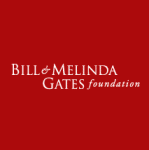Five Haitian Organizations Nominated for BMGF Global Health Award
 Each year, the Bill and Melinda Gates Foundation awards a single organzation one million dollars for its contributions to global health. A list of this year's nominees can be found here. Five of these nominees are organizations active in Haiti. I am familiar with, and very much respect the work of, FOSREF, GHESKIO, and Partners in Health. If you know of the other two organizations listed, please feel free to provide information in the comments section below. Once the awardee has been selected, we will post it as well.
Each year, the Bill and Melinda Gates Foundation awards a single organzation one million dollars for its contributions to global health. A list of this year's nominees can be found here. Five of these nominees are organizations active in Haiti. I am familiar with, and very much respect the work of, FOSREF, GHESKIO, and Partners in Health. If you know of the other two organizations listed, please feel free to provide information in the comments section below. Once the awardee has been selected, we will post it as well.
Fondation Pour la Santé Reproductrice et l'Education Familiale: FOSREF is a Haitian non-governmental organization whose mission is to promote Reproductive Health Education for Haitians and their families, particularly young people. FOSREF aims to make Sexual Reproductive Health (SRH) services as well as family education to youths more accessible; reduce the incidence of early and unwanted pregnancy among youth and adolescents; reduce the incidence of STDs/HIV/AIDS among youth and adolescents; increase the safe sex practices among youth and offer SRH services to vulnerable groups-youth sex workers, street children, children living in domesticity, etc.
Port-au-Prince, Haiti
Groupe Haitien d'Étude du Sarcome de Kaposi et des Infections Opportunistes (GHESKIO): The Haitian Study Group on Kaposi's Sarcoma and Opportunistic Infections is the first research group on human immunodeficiency virus infections (HIV) formed after the Centers for Disease Control in recognized AIDS in 1982. GHESKIO was founded by thirteen Haitian health professionals and through its services and research activities, has emerged as a national and international leader in the fight against diarrheal and mycobacterial diseases as well as AIDS and prevention of sexually transmitted diseases (STDs). From its inception, GHESKIO has been a model of integration and in cooperation with the private, public, national, international, university, and humanitarian sectors. Much of what is known about clinical presentation, epidemiology, and transmission of AIDS in Haiti comes from studies carried out by GHESKIO. (Port-au-Prince, Haiti)
Partners In Health (PIH): Partners In Health coordinates innovative programs to combat AIDS and women's health problems in rural Haiti and urban Massachusetts, groundbreaking tuberculosis treatment projects in the prisons of Siberia and the shantytowns of Lima, and health policy initiatives on a global scale. At its root, though, its mission is both medical and moral. It is based on solidarity, rather than charity alone. When a person in Peru, or Siberia, or rural Haiti falls ill, PIH uses all of the means at its disposal to make them well - from pressuring drug manufacturers, to lobbying policy-makers, to providing medical care and social services: whatever it takes. Just as they would do if a member of their own families - or they themselves - were ill. (Haiti)
Centre de Recherche pour le Développement: The Centre de Recherche pour la Développement is engaged in researching and promoting health issues that are crucial for individuals who lack access to conventional health care and resources in impoverish settings such as the rural and urban areas of Haiti. (Peguyville, Haiti)
Centres pour le Développement et la Santé (CDS): Founded in 1974 by a former minister of health and local small-business owners, CDS is Haiti's largest nonprofit group. CDS partners with international and national donors; with leaders in public and private sectors at national, regional, and local levels; with local decision-makers and influencers; and with individual community members and service beneficiaries to bring vital public health and development practices to more than 700,000 Haitians. By viewing community members and other stakeholders as critical collaborators rather than rivals or passive recipients, CDS has survived, sustained, and even expanded programs in spite of almost inconceivable conditions. For most of its 34-year existence, CDS has operated in a country plagued by natural disasters, brutal dictators, coups d'états, international occupations, staggering levels of crime (including drug trafficking) and violence, and repeated absences of a functional central government. CDS has made a tremendous and positive impact in Haiti and beyond through interrelated interventions including its community health model; local alliances with decision-makers and influencers like midwives and voudoun leaders; infrastructure improvements including a 100-bed hospital, schools, and a fresh water pipeline system; and publication and dissemination of research, lessons learned, and best practices. (Port-au-Prince, Haiti)
Add new comment